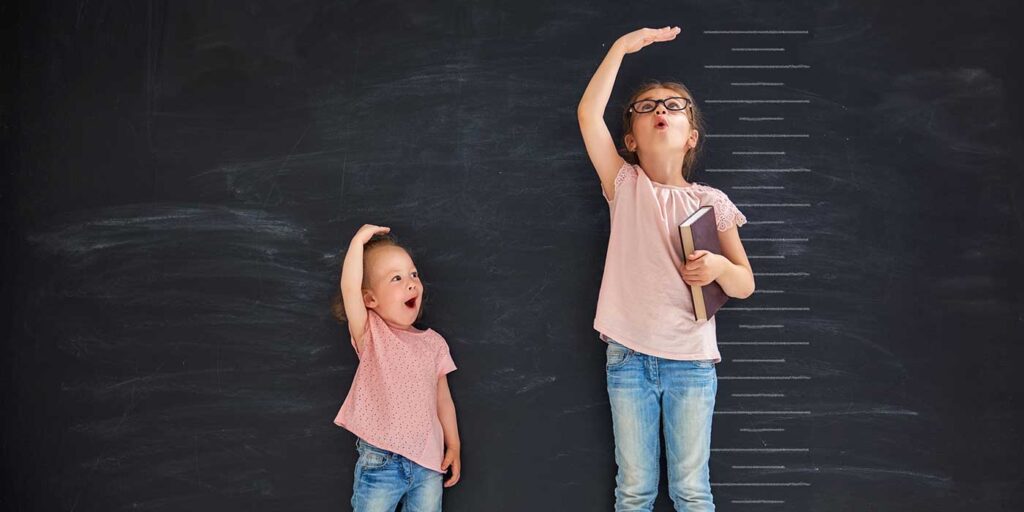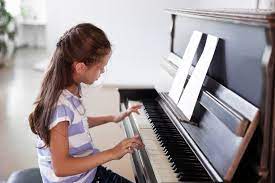Some children may be attracted to a piano from a very young age, especially when you have the piano around or at home. A piano is fun, easy, and interesting to play, and you can create multiple pleasant sounds from a piano.
Parents who want their child to learn how to play the piano may wonder what the right age is for their child to start their piano lessons, especially when they want their child to be very good at playing the piano.
Any individual can learn to play the piano almost at any age, but knowing what age will be best for your child to learn how to play the piano depends on certain factors that differ with each child.
Content Navigation
Best Age To Start Piano Lessons
The best age to start learning how to play the piano differs from child to child but is still between the ages of five to nine. Although students higher in age may find learning to play the piano easier, younger kids can also easily learn to play the piano because the piano keys are not difficult to operate.
It all depends on the child’s IQ and ability; some children below five years of age may also learn how to play the piano earlier.
How to know your child is ready to start taking piano lessons
For a parent, there are some factors you need to see in your child before you can be sure they are ready to start piano lessons.
Physical factors matter, such as the size of their hands and dexterity, if they already know how to coordinate their fingers or if your child can move each of their fingers independently.
And for older children or students, the needed factors also include their ability to stay focused on a particular thing, their social factors (An instrument player must be outstanding socially). Their determination to follow any practice plan, communication skills with other people (such as fellow students and or teachers).
Great Content: How Many Hours A Day Should I Practice Piano
Signs your child is ready to start taking piano lessons

Before deciding when your child should start taking piano lessons, you have to first search for the below signs in your child regardless of their age.
They must possess the most basic motor skills; If your child does not have motor skills or lacks control in some basic things, they may find it difficult to operate the keys on a piano, especially when trying to reach different notes on the keys.
However, learning to play the piano helps children develop their motor skills more and boost their self-esteem level.
Once your child has major control of their limbs and body, he will be able to play the piano since the piano creates easier than other instruments like the drums, violin, or the guitar and only requires most fingers and a little pressure from the arm to push keys and produce sounds.
When your child can tell the difference between both sides; When playing the piano, both hands are needed; therefore, knowing the difference between the left side and right side, left hand and right hand, is crucial when learning because most songs played on the piano needs keys on the left side and the right side.
Young students do not most necessarily need their sense of direction to be already highly developed. In fact, learning to play the piano helps kids to develop their sense of direction faster fully.
When your child knows a little number; Some songs played on the piano require important timing concepts, so your child must know how to count from one to at least four before learning how to play the piano.
They are eager to learn new things; When your child is eager to learn, you can assume that he will also be eager to play the piano. On the other hand, if your child is nonchalant or less concerned about learning anything at all, the piano, which requires determination, will not be any different.
If they are motivated to learn; Most children who are not motivated to learn or play the piano will not progress in their lessons, but those motivated to learn how to play the piano achieve more knowledge in a short period of time. If your child is not motivated, you can push them a little by offering rewards or presents for learning a new song.
When your child seems to be excited when listening to music, or if they get excited about the sound of a musical instrument, they are already motivated and will turn out to be a good student.
When your child can concentrate on something for a long period of time; If your child can concentrate for you 30 minutes or more while doing something, they will be able to concentrate while taking piano lessons.
Concentration is crucial when learning to play the piano because the more you practice, the better you get. Consistency is the key to learning to play any musical instrument.
When you feel they can practice every day; When your child can concentrate on a particular thing for up to 30 minutes every day, they are ready to start taking piano lessons.
You can get a toy keyboard or piano for your child at home and see if he can concentrate on the toy for up to 30 minutes every day. This way, you can be certain he will concentrate fully on a real piano during lessons every day.
When your child listens and follows instructions and is mature; The social behavior of kids in the age range of six to nine years will differ from each other, so even if your child is not highly social, as far as they will listen to you follows instructions when given.
You can enroll them for piano lessons since they will most likely listen to an instructor and follow instructions. Their social behavior may improve with time as well.
Things to do to keep your child motivated when learning to play the piano
When your child has started piano lessons, there are a few things you need to do to keep your child motivated and keep the fire burning to avoid your child getting bored of learning.
You must get a real piano or a keyboard at home, and set it up in a busy part of the house such as their bedroom, the living room, or the playroom, somewhere that is used commonly and that the instrument will be impossible not to see and also easy to play in.
Make sure always to keep the piano in good shape, so your child will not be discouraged towards learning; remember to tune the piano when due because when the piano is not properly tuned, it will sound bad, and your child might start to lose interest.
If you seem to forget to tune the piano, you can decide to get a keyboard. Of course, an electronic keyboard can also work like a piano, plus it does not require tuning and will only occupy a little space. But if you feel a piano is the best, you can use a piano and set reminders for cleaning, maintenance, and tuning.
You should make sure to set the piano in a way that will fit the night of your child; you should set the piano and the piano bench properly, and your child should not be uncomfortable while playing when the height of the piano or bench is not right.
Your child will develop bad posture while playing and may maybe even feel pain after practicing. In addition, feeling uncomfortable while playing may discourage your child from wanting to play the piano continuously.
Try not to rush your child into learning or playing fast. Your child might not learn properly but will know how to play fast; this will be a problem because he will not be a good pianist but a fast one. Let them learn gradually at first, even during practice, when he is good enough, then you can concentrate on being fast.
It would help if you managed their practice habits properly; their piano practice should be at the same specific time and duration every day so that he or they will not be disoriented during practice. Maintain their practice schedule accurately and make sure they are hitting the right notes as thought by their instructor.
When you keep the good practice habit consistent, they will learn that way, and when they get older and can handle their practices by themselves, they will not have problems practicing on their own.
With these tips, you won’t have a hard time keeping your child motivated to keep playing the piano. It is never too late to learn how to play the instrument, so if your child doesn’t seem ready to play an instrument at six to nine years, you can try in the next year or two.
Related Posts
How Much Does Tuning A Piano Cost
What Does The Middle Pedal On The Piano Do
Key Notes On How To Sight Read For Beginners
What Does The Left Pedal On A Piano Do
How Many Keys Are There On A Piano

